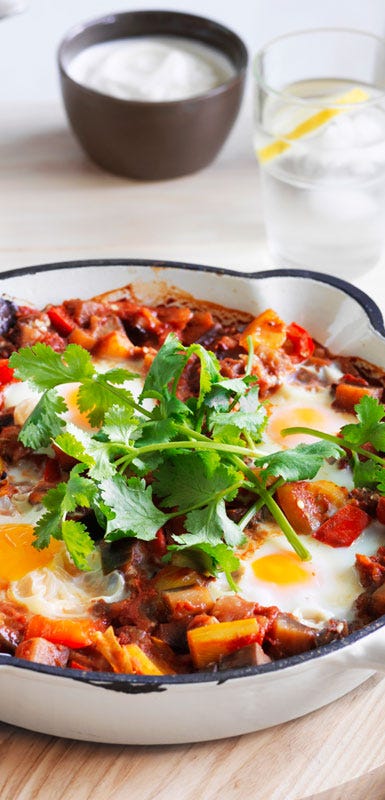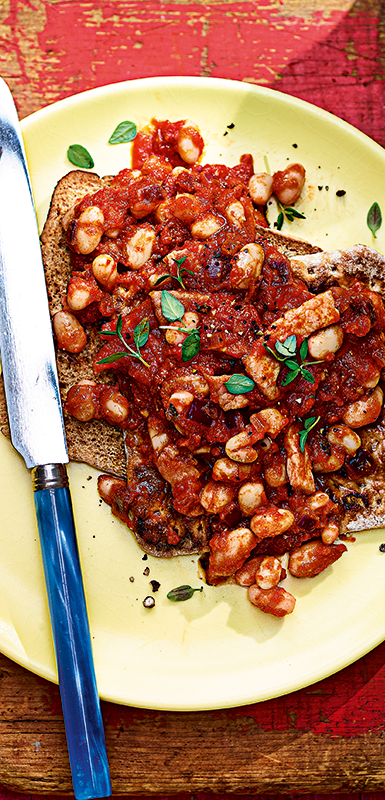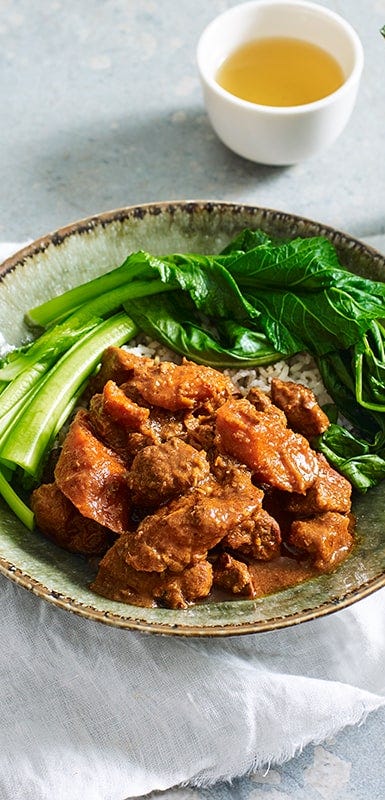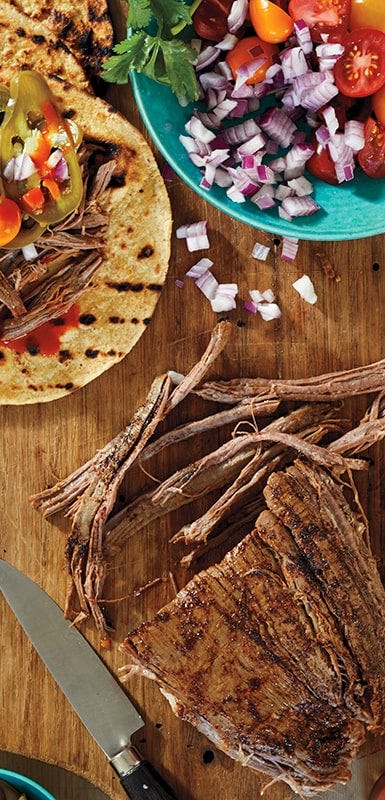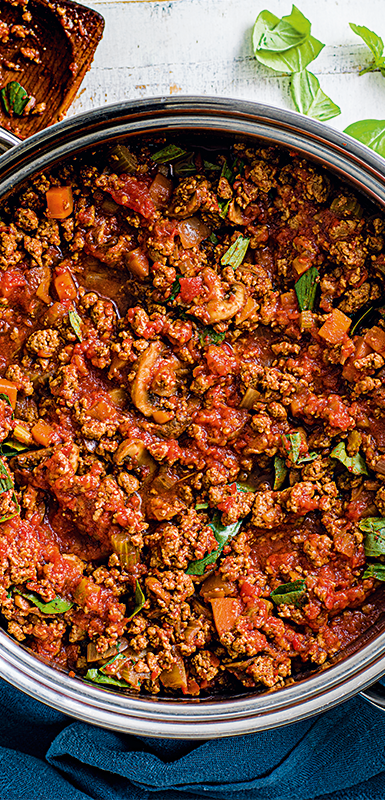Why protein-packed meals are your best friend this winter
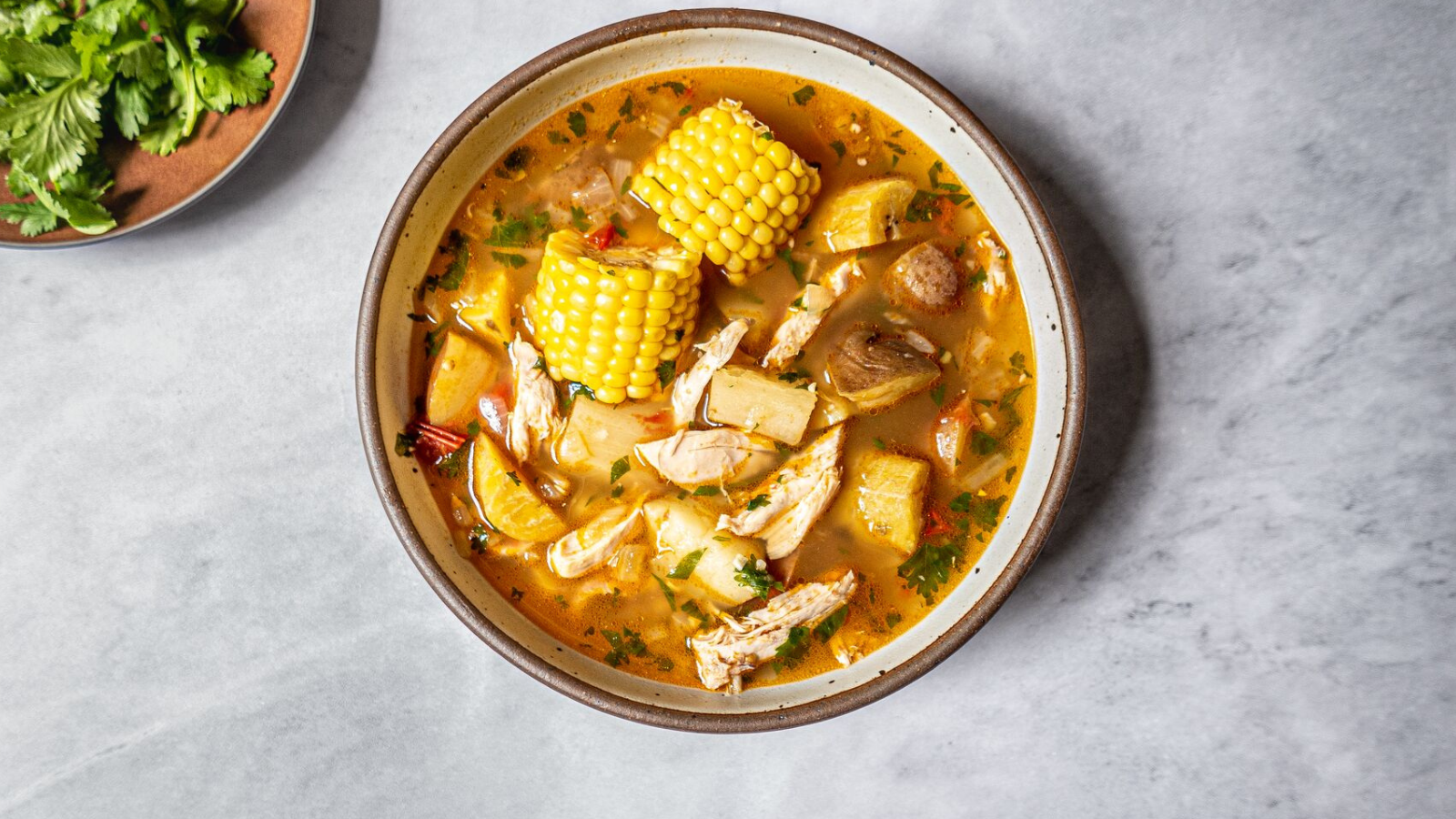

As the temperature drops, you might find salads giving way to soups, stews and sauce-covered dishes at your place. And it turns out it makes perfect sense, with research suggesting everything from evolution to social conditioning and even the gut-brain axis may help explain why we tend to naturally gravitate towards richer, comfort-type foods when it’s cold.
But, if you think ‘hearty’ has to mean ‘less healthy’, think again. The key is making sure your winter-warming meals are packed with enough protein.
Why should I eat protein in winter?
In a nutshell, protein is critical to a wide variety of body functions, everything from cell growth and repair to maintaining a strong immune system, and it’s key for building muscle, too. Plus, like fat and carbohydrate, protein is also used by the body as a source of fuel or energy.
Regardless of the season, eating protein-rich foods every day is the best way to ensure you’re providing your body with enough of this essential nutrient, but here are three reasons why it’s a particularly smart strategy as the weather gets cooler.
1. You’ll feel fuller for longer. Given ‘hearty’ typically means hunger busting, bear in mind research shows it’s protein that activates the release of hormones that promote satiety—or in other words, that feeling of fullness.
So, if you want your cold-weather meals to be hearty, including a source of protein, whether it’s plant-based like legumes or something like eggs, meat, fish or dairy, will help you achieve it.
2. It will help you maintain a healthy weight. Or allow you to keep moving towards a weight-loss goal, if you’ve got one in your sights.
Various studies and scientific reports have associated adequate protein intake with promoting healthy weight loss. Recently, researchers from the University of Sydney suggested that prioritising protein during perimenopause might also help protect against menopause-related weight gain.
One explanation for the link between protein and healthy weight is something called the Protein Leverage Effect. Also discovered by researchers at the University of Sydney’s Charles Perkins Centre, essentially it means your body has a protein target it needs to meet. So, if your meals don’t include a protein-rich food, you’ll naturally keep grazing on lower-protein, carbohydrate- or fat-rich foods until you do reach that protein target, which can mean consuming many more calories (kilojoules) than your body actually needs, along the way—all in the search of protein.
3. Many proteins are ZeroPoint foods! Eggs, chickpeas, barramundi, chicken breast mince, tofu … at WeightWatchers®, they’re all ZeroPoint foods. That not only means they’re nutrient-, vitamin- and mineral-packed foods, it also means you don’t have to weigh, measure or track them when you eat them—no matter how often you reach for them.
You can even enjoy protein-rich, warming zero Point meals like curried red lentil chickpea stew or chicken and vegetable soup. Talk about making healthy eating and life in general easier this winter.
How to add protein to your winter cooking
To get the most out of the foods and meals you enjoy this season, try to:
- Include some protein in every meal.
Yes, even breakfast – in fact, particularly for breakfast, according to a CSIRO report, Protein Balance: New concepts for protein in Weight Management. The report found that while including a source of protein at each and every meal is important, a protein-rich breakfast may help to control hunger later in the day.
Stuck for ideas when it comes to squeezing some protein into your morning meal? And making sure it’s a meal that’ll warm you up at the start of the day? We have you covered! From shakshuka to salmon pan eggs or homemade beans on toast, you’ll find plenty of hearty and healthy breakfast recipes in the app.
- Eat a variety of different protein-rich foods.
While meat is a protein powerhouse—with 1 medium cooked chicken breast providing 45g of protein compared to the 7g of protein ½ cup of cooked green lentils contains—to maximise protein’s muscle-building abilities, research shows it's best to include a variety of protein-rich foods in your diet.
As well as poultry and meat, other sources of protein include beans, peas and lentils, fish and seafood, eggs, tofu and tempeh, dairy foods and nuts and seeds. And remember plant-based proteins, like beans, peas and lentils and soy products like tofu and tempeh, aren’t simply suitable for people following a vegan or vegetarian diet. Anyone can—and should—choose to eat plant-based protein foods for variety.
Plus, unlike animal-based protein sources, some plant-based sources of protein—like chickpeas, lentils, red kidney beans, cashews and pistachio nuts—also contain fibre that act as prebiotics, stimulating the growth or activity of good gut bacteria.
- Lean on slow-cooked protein-rich recipes.
Slow-cooked recipes can be a saviour anytime, but may be particularly useful during winter.
As well as filling the house with comforting, mouth-watering aromas that’ll greet you at dinner time, because they’re prep, set and forget style meals, they allow you to get ahead—that way, no matter how busy the end of the day becomes, you’ll have a protein-packed meal ready to go, because the slow cooker has done all the work for you.
Check out WW’s 10 slow cooker recipes with just 10 minute prep for some ideas and inspiration, as well as 10 tips to help you get the most out of slow cooking. From red pork curry to steak tacos, there is a recipe there for everyone to love.
Don’t have a slow cooker? No problem! A one-pot meal can be equally delicious and nutritious and means there’s hardly any washing up to do, after you’ve eaten. Choose one of our easy one-pot recipes for this winter. Enjoy!

